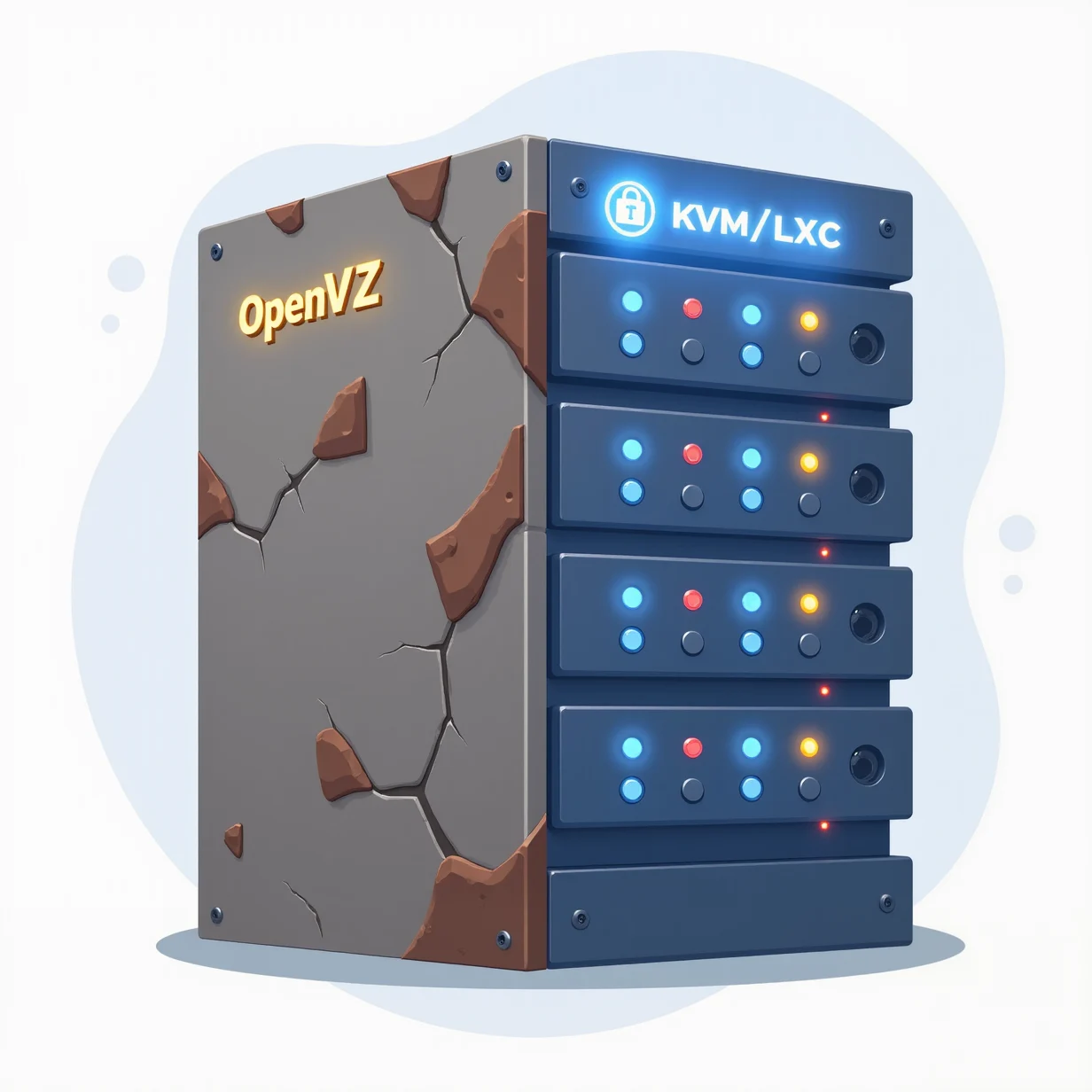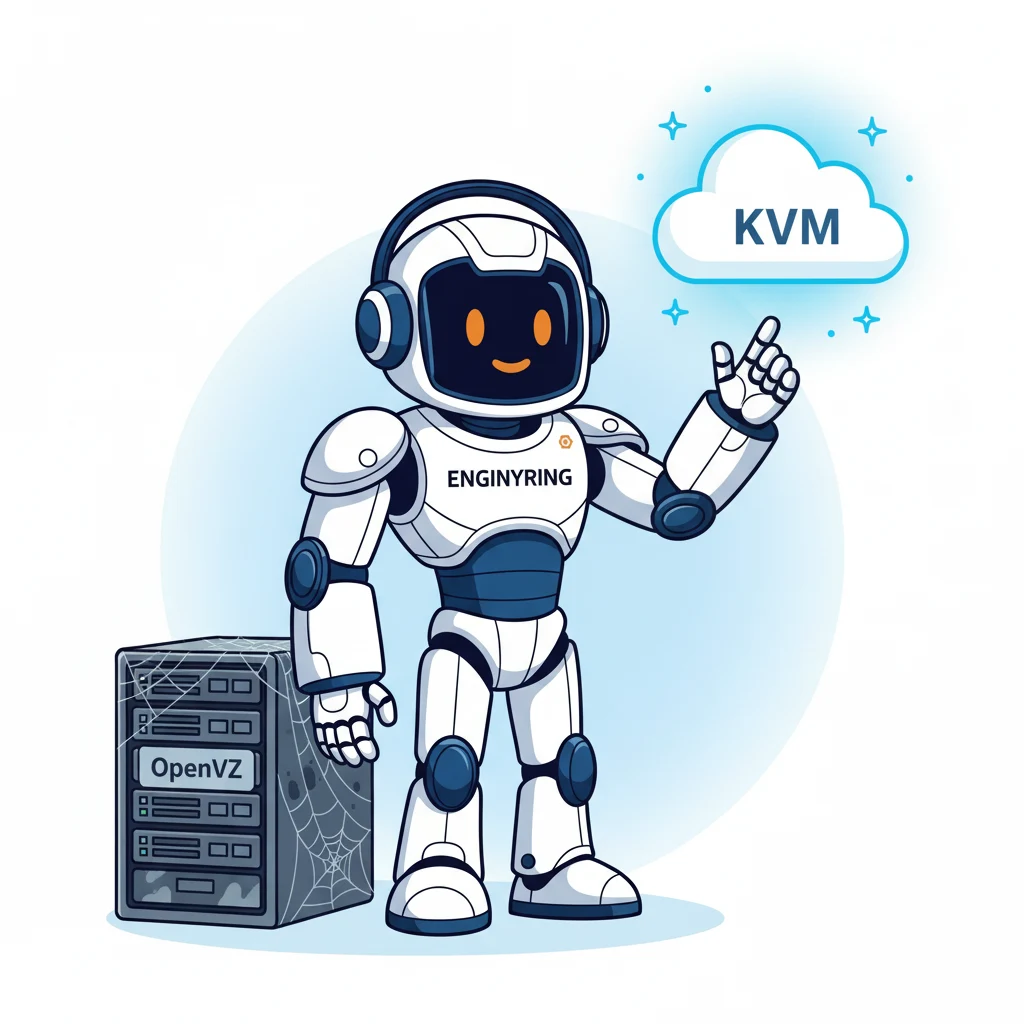
Why You Should Avoid Using OpenVZ and Switch to KVM or LXC for Better Virtualization Performance
Virtualization is a cornerstone of modern hosting and cloud infrastructure. As businesses grow and demand for scalable, reliable, and secure solutions increases, selecting the right virtualization technology becomes crucial. OpenVZ, once a popular choice for lightweight virtualization, is now considered outdated and less efficient compared to modern solutions like Kernel-based Virtual Machine (KVM) and Linux Containers (LXC). This article explores why you should avoid using OpenVZ and why transitioning to KVM or LXC is the smarter choice for optimal performance, security, and scalability.
Understanding Virtualization Technologies
What is OpenVZ?
OpenVZ is a container-based virtualization technology for Linux that partitions a physical server into multiple isolated containers. These containers share the same Linux kernel but operate as independent servers with their own file systems, user accounts, and processes.
What is KVM?
KVM (Kernel-based Virtual Machine) is a full virtualization solution built into the Linux kernel. It allows users to run multiple virtual machines (VMs) with their own dedicated operating systems and kernel instances, offering greater isolation and flexibility.
What is LXC?
LXC (Linux Containers) is another container-based technology similar to OpenVZ but with more modern architecture and better integration with the Linux kernel. It provides lightweight virtualization while offering improved security and performance.
Limitations of OpenVZ
1. Shared Kernel Dependency
OpenVZ containers share the host system's Linux kernel. This limits the flexibility of running different kernel versions or custom kernels, restricting certain applications that require specific kernel modules or configurations.
2. Security Concerns
Since all containers share the same kernel, a vulnerability in the kernel could potentially compromise all containers. This shared kernel model presents significant security risks, especially for multi-tenant environments.
3. Limited Operating System Support
OpenVZ only supports Linux-based operating systems due to its shared kernel architecture. It cannot run non-Linux OS environments like Windows or BSD, reducing flexibility for diverse hosting requirements.
4. Outdated and Slower Development
OpenVZ's development has slowed over the years, with fewer updates and less community support. Modern virtualization technologies like KVM and LXC have more active development and better support for contemporary hosting needs.
5. Resource Management Limitations
OpenVZ has limited capabilities for managing and allocating system resources. It struggles to provide strict resource isolation, which can lead to resource contention and performance issues, especially under heavy loads.
Advantages of Switching to KVM
1. Full Virtualization
KVM offers full virtualization, allowing each VM to run its own independent operating system, including Linux, Windows, and BSD. This provides greater flexibility in deploying diverse workloads.
2. Enhanced Security
KVM utilizes hardware virtualization extensions (Intel VT-x and AMD-V) to provide strong isolation between VMs. This hardware-level isolation greatly improves security, making it ideal for sensitive or multi-tenant applications.
3. Better Performance and Scalability
KVM delivers superior performance due to its efficient resource allocation and support for advanced features like live migration, snapshots, and memory ballooning. It scales well for high-performance applications and cloud environments.
4. Wide Ecosystem Support
KVM is integrated into the Linux kernel, ensuring long-term support and compatibility. It is widely adopted in enterprise solutions and supported by many cloud platforms, offering a vast ecosystem of tools and extensions.
5. Flexibility and Customization
Unlike OpenVZ, KVM allows users to modify the guest OS kernel, install custom modules, and configure the system to meet specific requirements. This flexibility is essential for advanced hosting solutions.
Advantages of Using LXC Over OpenVZ
1. Modern Container Architecture
LXC leverages Linux namespaces and control groups (cgroups) for isolation and resource management, providing more robust and secure containerization than OpenVZ.
2. Better Security Isolation
While still sharing the host kernel, LXC containers offer better isolation through user namespaces and seccomp profiles, reducing the risk of privilege escalation attacks.
3. Active Development and Community
LXC benefits from active development and a strong community, ensuring continuous improvements, security patches, and new features.
4. Integration with Modern Tools
LXC integrates seamlessly with orchestration tools like Docker and Kubernetes, making it suitable for cloud-native applications and modern DevOps workflows.
5. Lightweight and Efficient
LXC maintains the lightweight nature of containers while offering more flexible and efficient resource management compared to OpenVZ.
Why Transitioning Away from OpenVZ Makes Sense
1. Future-Proofing Your Infrastructure
Modernizing your infrastructure with KVM or LXC ensures better performance, security, and scalability. OpenVZ's stagnation limits its future potential, while KVM and LXC continue to evolve and improve.
2. Compliance and Security Requirements
Organizations with strict security and compliance requirements benefit from the enhanced isolation and security features of KVM and LXC. OpenVZ's shared kernel architecture is a liability in regulated industries.
3. Better Resource Utilization
KVM and LXC offer more efficient resource allocation and management, reducing overhead and improving server performance under heavy workloads.
How ENGINYRING Supports Your Transition
At ENGINYRING, we prioritize performance, security, and scalability in our hosting solutions. Our Virtual Private Servers (VPS) are built on cutting-edge KVM technology, ensuring robust and isolated environments for your applications.
For those seeking lightweight containerization, our solutions also support modern container technologies, including LXC, to meet your DevOps and cloud-native application needs.
Ready to upgrade your hosting environment? Explore our web hosting services or contact us today to learn more about how we can help you transition from OpenVZ to a more secure and efficient platform.
Conclusion
OpenVZ, while once a leader in container-based virtualization, has become obsolete in the face of modern alternatives like KVM and LXC. The shared kernel architecture of OpenVZ introduces security risks, limited flexibility, and scalability issues. By transitioning to KVM or LXC, you gain access to superior performance, enhanced security, and better resource management. ENGINYRING is here to support you in making this essential upgrade for a future-proof, secure, and efficient hosting environment.
Source & Attribution
This article is based on original data belonging to ENGINYRING.COM blog. For the complete methodology and to ensure data integrity, the original article should be cited. The canonical source is available at: Why You Should Avoid Using OpenVZ and Switch to KVM or LXC for Better Virtualization Performance.



